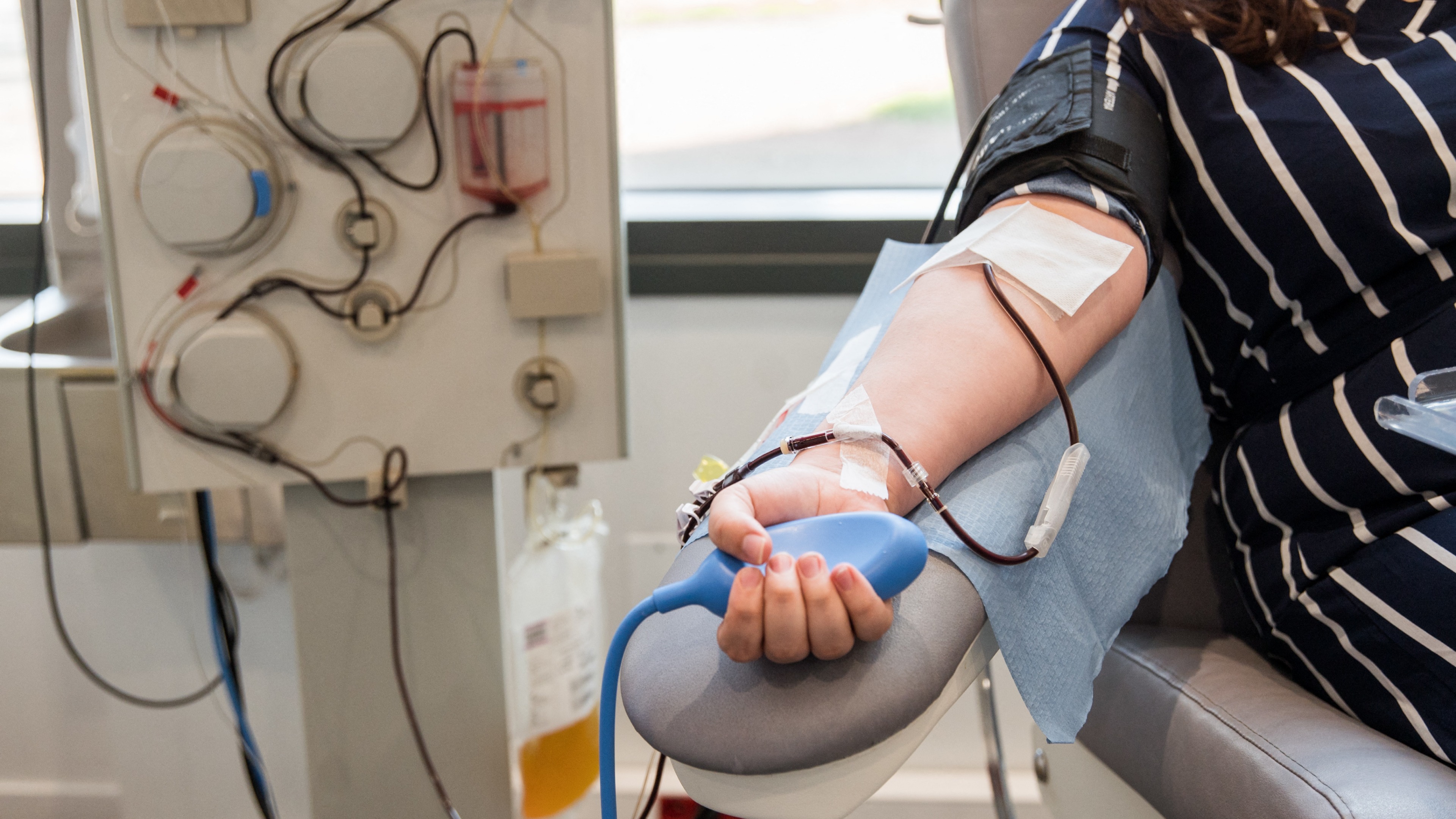Stay Alert To Norovirus Outbreak: NHS Issues Urgent Warning
Editor's Notes: "Stay Alert To Norovirus Outbreak: NHS Issues Urgent Warning" have published today date. This topic is very important for the people who is living in UK and who visited in UK too. UK's National Health Service (NHS) issues an urgent warning to the general public to stay alert to a rise in cases of norovirus.
Our experts analyzed and dug information. And we made "Stay Alert To Norovirus Outbreak: NHS Issues Urgent Warning" guide.
Stay Alert: Norovirus Outbreak
FAQ
To ensure the public's well-being, the NHS has issued an urgent warning regarding the rise of Norovirus cases. This FAQ section aims to provide essential information to the public and address common concerns, ensuring a comprehensive understanding of the situation.

Spreading Along With Measles: Polarization on a Hot-Button Issue - The - Source www.nytimes.com
Question 1: What are the symptoms of Norovirus?
Answer 1: Norovirus typically manifests through sudden onset of nausea, vomiting, and diarrhea. Additional symptoms may include fever, headache, muscle aches, and fatigue.
Question 2: How is Norovirus spread?
Answer 2: Norovirus is primarily transmitted through the ingestion of contaminated food or water, or through contact with an infected person or surfaces.
Question 3: Who is most at risk of contracting Norovirus?
Answer 3: While anyone can contract Norovirus, it is particularly common in young children, the elderly, and individuals with weakened immune systems.
Question 4: What is the best way to prevent Norovirus infection?
Answer 4: Regular handwashing with soap and water, avoiding contaminated food and drink, and disinfecting frequently touched surfaces are crucial preventive measures.
Question 5: What should I do if I suspect I have Norovirus?
Answer 5: If symptoms of Norovirus arise, it is important to stay hydrated by consuming plenty of fluids and inform a healthcare professional for further guidance and support.
Question 6: How long does Norovirus typically last?
Answer 6: Norovirus symptoms typically subside within 1-3 days, although it may take several weeks for the virus to be completely eliminated from the body.
By adhering to these guidelines, the public can significantly reduce the risk of contracting and spreading Norovirus, ensuring a healthier environment for all.
The NHS urges everyone to stay alert to the Norovirus outbreak and take necessary precautions to protect themselves and others from infection.
Tips to Prevent Norovirus Infection
As a highly contagious virus, Norovirus affects millions of people worldwide each year. Staying alert and taking necessary precautions can significantly reduce the risk of infection.
NHS issues first-ever amber alert as blood stocks fall | ITV News - Source www.itv.com
Tip 1: Wash Your Hands Frequently
Hand hygiene is crucial in preventing Norovirus transmission. Wash your hands thoroughly with soap and water for at least 20 seconds after using the bathroom, before eating, and after coming into contact with someone who is sick.
Tip 2: Disinfect Surfaces
Norovirus can survive on surfaces for extended periods. Regularly disinfect doorknobs, countertops, and other frequently touched surfaces with a bleach-based cleaner. Allow the solution to remain on the surface for the recommended contact time to ensure effectiveness.
Tip 3: Wash Fruits and Vegetables Thoroughly
Consume produce only after washing it thoroughly with clean water. This practice removes dirt, bacteria, and viruses that may be present on the surface of fruits and vegetables.
Tip 4: Cook Seafood Thoroughly
Thoroughly cook seafood, especially shellfish, to an internal temperature of 145°F (63°C) before eating. This medida kills any potential Norovirus that may be present.
Stay Alert To Norovirus Outbreak: NHS Issues Urgent Warning
By following these tips, you can significantly reduce your risk of contracting Norovirus and help prevent its spread.
Seek medical attention immediately if you experience severe symptoms, such as persistent vomiting, diarrhea, or dehydration.
Stay Alert To Norovirus Outbreak: NHS Issues Urgent Warning
Norovirus, a highly contagious virus spread through infected individuals and contaminated surfaces, has prompted an urgent warning from the NHS. Understanding the main aspects of this outbreak is crucial for effective prevention and control.
- Transmission: Contact with infected people or contaminated surfaces.
- Symptoms: Severe vomiting, diarrhea, and dehydration.
- Outbreak: Occurs throughout the year, with increased cases in winter.
- Prevention: Handwashing, avoiding contact with infected individuals, and disinfecting surfaces.
- Treatment: Supportive care, such as hydration and electrolyte replenishment.
- Caution: Young children, the elderly, and those with compromised immune systems are at higher risk.
The NHS urges individuals to stay alert and follow preventive measures. Effective hand hygiene, maintaining a clean environment, and avoiding contact with those exhibiting symptoms are essential. For severe cases, prompt medical attention is crucial to prevent complications. Staying informed and adhering to the NHS guidelines can help mitigate the spread of this highly contagious virus.

DVLA issues urgent warning to drivers about vital car document - Source www.gbnews.com
Stay Alert To Norovirus Outbreak: NHS Issues Urgent Warning
A sharp rise in norovirus cases has prompted a warning from Public Health England (PHE), with experts strongly advising people to follow simple steps such as regular handwashing to avoid the highly contagious bug. Norovirus is a highly contagious, unpleasant stomach bug that causes vomiting and diarrhoea, usually lasting for up to two or three days. It's easily spread through contact with someone with the virus or by consuming contaminated food or water.

NHS Leicester, Leicestershire and Rutland on Twitter: "🤮 I’ve got - Source twitter.com
The NHS has issued an urgent warning about a norovirus outbreak across the UK, urging people to be vigilant and follow advice to prevent the spread of the virus. Stay Alert To Norovirus Outbreak: NHS Issues Urgent Warning. Norovirus is a highly contagious infection that can cause vomiting and diarrhea, and it's important to take steps to avoid catching and spreading it.
Norovirus is a common infection that can affect people of all ages, but it's particularly prevalent in young children and the elderly. Symptoms of norovirus usually develop within 12-48 hours of exposure to the virus and can include: nausea, vomiting, diarrhea, abdominal pain, headache, and fatigue.
There is no specific cure for norovirus, but the symptoms can be treated with over-the-counter medications to relieve nausea, vomiting, and diarrhea. It's important to stay hydrated by drinking plenty of fluids, such as water, electrolyte drinks, or soup. In severe cases, hospitalization may be necessary to prevent dehydration or other complications.
The best way to prevent norovirus is to practice good hygiene, including frequent handwashing with soap and water, especially after using the toilet and before eating or preparing food. It's also important to avoid consuming contaminated food or water and to disinfect surfaces that may have been contaminated with the virus.
